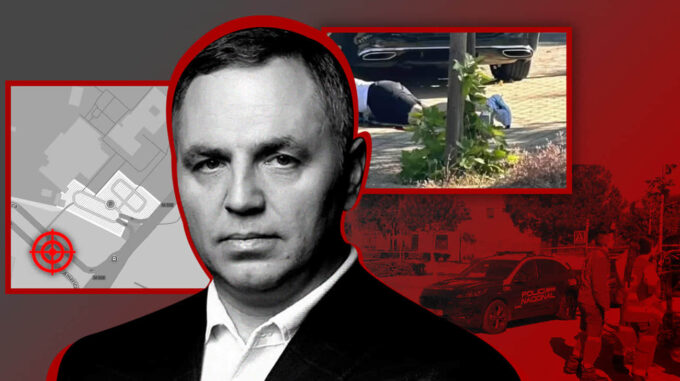Spanish law enforcement authorities have refused to cooperate with the Ukrainian side in the investigation of the murder of former Viktor Yanukovych associate, a well-known lawyer and shadow curator of Ukrainian courts, Andriy Portnov

Sources close to the situation report that Spanish investigators not only declined to establish a joint international group to clarify the circumstances of the crime but also have no intention of returning the body of the murdered Ukrainian to Ukraine. This raises justified questions about possible reasons for such a stance and its potential political implications. According to information obtained by the "Ukrainska Pravda" editorial team, the Ukrainian side attempted to initiate a joint investigation immediately after the tragic event but was denied. Sources indicate that Spanish investigators suspect possible involvement of Ukrainian special services in the murder, which would remove a straightforward lead for the investigation. At the same time, Ukrainian law enforcement has several versions regarding the motives for the attack beyond the cause of Portnov’s death. One theory suggests that the goal was to gain access to investigation materials and the personal gadgets of the deceased — phones, tablets, computers — which potentially contained sensitive information for Ukraine. Another version involves the desire of Ukrainian authorities, particularly influential law enforcement overseer Oleg Tatarov, to quickly establish all the circumstances and motives behind the crime to avoid uncontrollable consequences and inappropriate media reactions. Concurrently, the Spanish authorities maintain their position regarding the non-extradition of Portnov’s body to Ukraine. It is known that the decision on the burial transfer may be made no earlier than the beginning of next week. This fuels additional fears and speculation around the true reasons for such a refusal — whether it is to protect the interests of their own law enforcement institutions or due to possible political games. Incidentally, Andriy Portnov, who was appointed deputy head of the Presidential Administration during Yanukovych’s time in 2010-2014 and remains a quite controversial figure, actively denies any involvement in crimes committed during the Revolution of Dignity and his subsequent exile. It is known that as early as 2018, criminal proceedings were initiated against him under the article of “state treason,” but in 2019 Ukrainian law enforcement officially announced the case’s closure. At the same time, recordings surfaced revealing conversations discussing illegal influence by Portnov in the judicial system and political elites. This included confessions of interference in judicial appointments and political processes, which caused chaos within the judicial system and affected decisions of the Constitutional Court. A particular concern is the fact that during the early tenure of the new government — under the leadership of Iryna Venediktova — Portnov actively blackmailed the leadership of the General Prosecutor’s Office, threatening to have “disturbing” kompromat on their activities. In 2020, according to Oleksandr Sokolov from the State Bureau of Investigation, “groups and individuals” within law enforcement shared information with former officials, including Portnov. Equally important is the international aspect of this story: in December 2021, the U.S. imposed sanctions on Portnov as a former high-ranking official and his charitable foundation — an event that served as another hint at his complex political and criminal reputation. Overall, the murder of Andriy Portnov has become a blow to the heart of political intrigue and the struggle for control over the judicial system, remaining an unresolved issue for Spanish law enforcement. The killing, carried out on May 21 in Madrid near the American School, remains unsolved. Additionally, Spanish investigators insist that the questions regarding the exhumation of Portnov’s body and his post-mortem data remain open, complicating the process of establishing the truth and obtaining answers in this high-profile criminal and political case.

